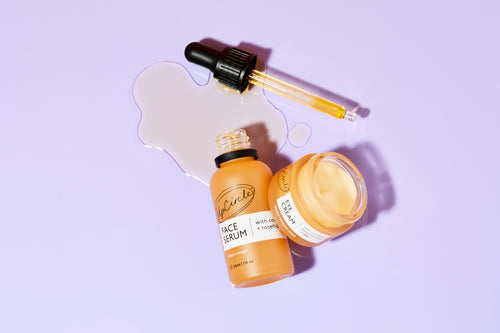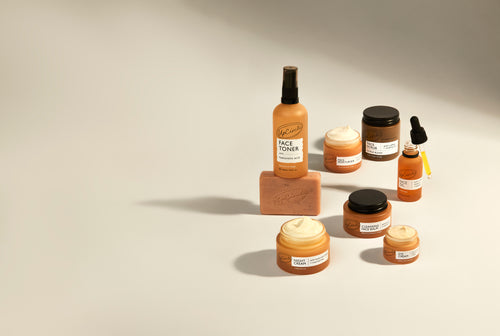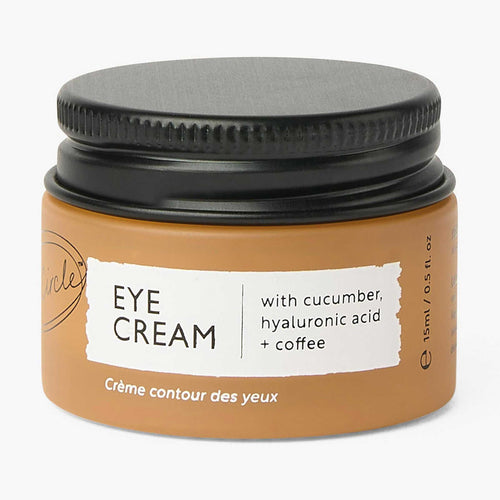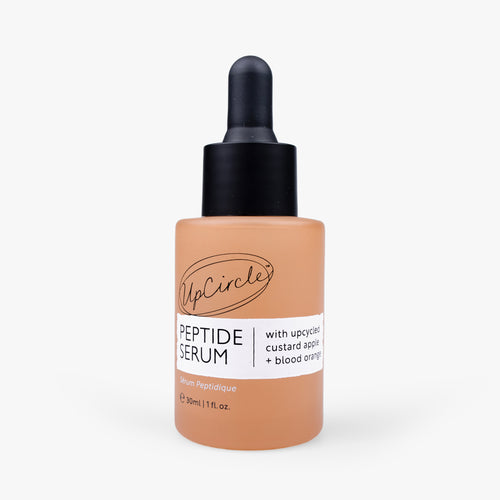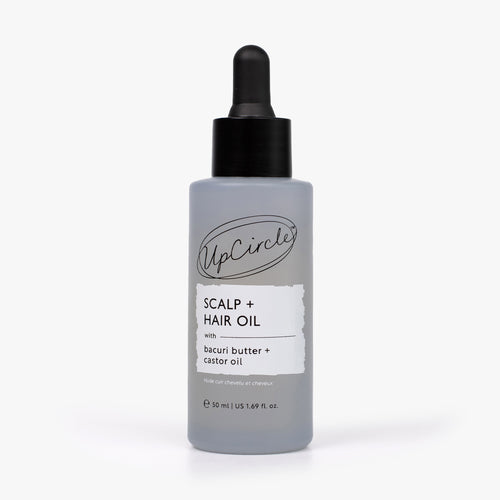Did you know that dry skin and dehydrated skin are different things? One is a condition, and one is a skin type. It can be helpful to know whether your skin is dry or dehydrated, as it will determine how to combat the underlying issue. Let’s explain.
Dry or dehydrated skin – what’s the difference?
Dry skin is a skin type. Like ‘oily’ or ‘combination’ skin, dry skin refers to the inherent nature of your skin’s characteristics. With dry skin, your skin doesn’t produce or hold as much sebum, or oil. It can therefore appear flaky, scaly and dry. It’s not uncommon for dry skin to have patches of redness and irritation. Those with dry skin are also more likely to experience conditions such as eczema, psoriasis and dermatitis.
Dehydrated skin is a condition. It simply means that your skin doesn’t have enough water in it to undertake its self-healing processes. We know water is good for your body and health, but it’s important for skin health too.
Skin dehydration can be caused by all sorts of different factors. In winter, the cold and biting air dehydrates the skin, whilst in the summer the sun can do the same. Your environment – for example, living in a more polluted city – can also affect hydration levels. Your diet is obviously important too.
The difference between dry and dehydrated skin is a really important distinction because people with all skin conditions, from oily to dry, can still have dehydrated skin.
The signs of dehydrated skin
So, understanding that dehydration can affect all skin types, what are the signs that skin is dehydrated? We’ll come onto the quick test you can do to determine if your skin is dehydrated next, but there are some tell-tale signs of facial dehydration.
Dehydrated skin – whatever your skin type – will appear prematurely aged. It will be dull, with a loss of elasticity and increased lines and wrinkles. It’s also not uncommon to experience itchiness and irritation as well as dark circles under the eyes, and a general look of tiredness.
Is my face dry or dehydrated?
There is a chance it is both dry and dehydrated. The trick is to identify and eliminate dehydration first. After this, signs of dryness will relate to your skin type which you can then address. There is a simple test for determining if skin is dehydrated, called the pinch test.
The pinch test for dehydration is really simple to do:
- Stand in front of a mirror if testing your face, or so that you can see your body clearly.
- Pinch small parts of your skin on your cheek, back of your hand, tummy or chest and hold the pinch for 3-4 seconds.
- Let go and see how your skin responds.
If your skin bounces back to normal when you let go then you are probably amply hydrated. However, if your skin takes a few moments to respond and return to normal then dehydration is likely to be a concern. You can try it with different areas of your skin, but you should get a fairly uniform result.
So, why does the difference matter? Well, once you’ve determined whether your skin is dry or dehydrated, you’ll then want to take a different approach to how you treat your skin.
The difference between dehydrated and dry skin treatments
We need to consider two main approaches: hydration and moisturising. Dehydrated skin errs towards needing hydration, whereas dry skin errs towards needing moisturisation. This can be a little more complex if you are one of the many who has both dry and dehydrated skin. We recommend you always deal with dehydration first, and maintain good levels of hydration, before you move onto dealing with dryness.
There are various different ingredients in skincare products which bring different benefits to dry or dehydrated skin. Oils, such as almond oil or coffee oil, are excellent for dry skin; whereas the ingredient Aloe is excellent for hydration. Hyaluronic acid, which is in our Face Toner and Eye Cream, is excellent for addressing both dryness and dehydration.
How to combat dehydrated skin
Given that it makes sense to deal with dehydrated skin first, and this can affect all skin types, let’s look at some ways to eliminate dehydrated skin.
Firstly, consider hydration from the inside out. As well as drinking more, add liquid-rich foods to your diet. Strawberries, cucumber and melon are all excellent ways of increasing the water in your diet. At the same time, try to reduce your alcohol and caffeine intake; these are both very dehydrating.
Secondly, consider your skincare routine. Choose a gentle cleanser which is free from harsh and artificial chemical additives, as they strip the skin of its natural moisture. Our Cleansing Face Balm with Apricot Powder is ideal, washing away impurities without stripping away moisture.
We also really recommend using a carefully formulated toner with dehydrated skin. Our Face Toner with Chamomile and Mandarin is perfect as it contains hyaluronic acid which is exceptional at hydrating the skin. This is a deep way of hydrating skin and it will help to keep hydration locked in.
How to combat dry skin
We have a specially-selected range of skincare products for dry skin. Remember to keep your skin hydrated as above, but also consider how you can deal with the dryness too.
An important part of your skincare routine, if you have dry skin, is exfoliation. Our Citrus Blend Coffee Face Scrub is ideal for buffing away flaky dry skin on your face. Meanwhile, the Coffee Body Scrub with Lemongrass is wonderful for gentle exfoliation of your whole body. Exfoliation is hugely important if you have dry skin, as dead skin build-up can minimise the effectiveness of moisturisers.
If you experience dry skin on your face, we also highly recommend the use of a face oil, such as our Organic Face Oil with Coffee Extract. Use this alongside our hyaluronic acid rich Face Toner with Chamomile and Mandarin to keep dryness at bay.
Those with dry skin will also want to pay particular attention to their moisturiser. A good Face Moisturiser, as well as a Body Cream will be important.
Love your skin
Your skin needs water to be healthy and at its best. It also needs a little consideration to its particular type. Once you combine your approach to dealing with dehydration and caring for your skin type, you’ll have radiant and healthy skin.

